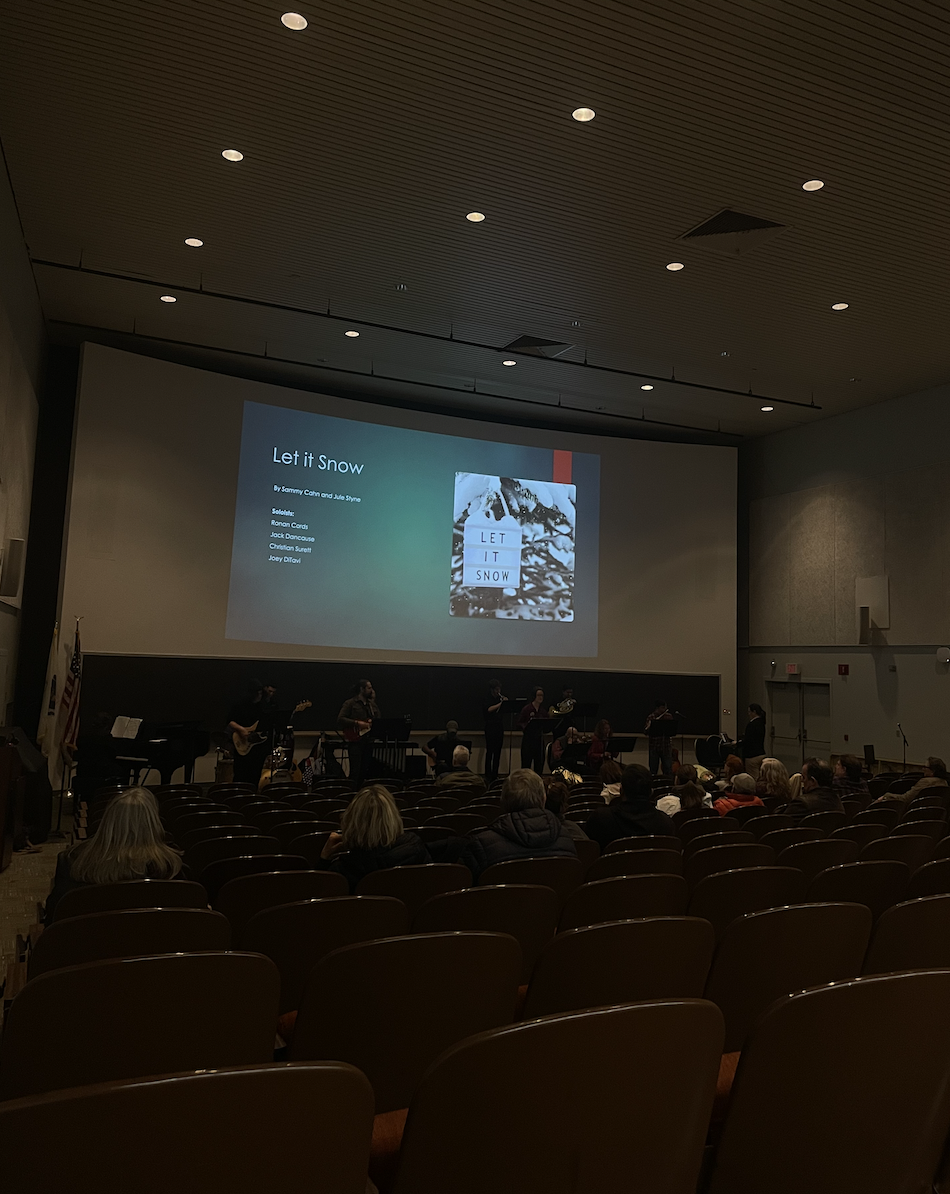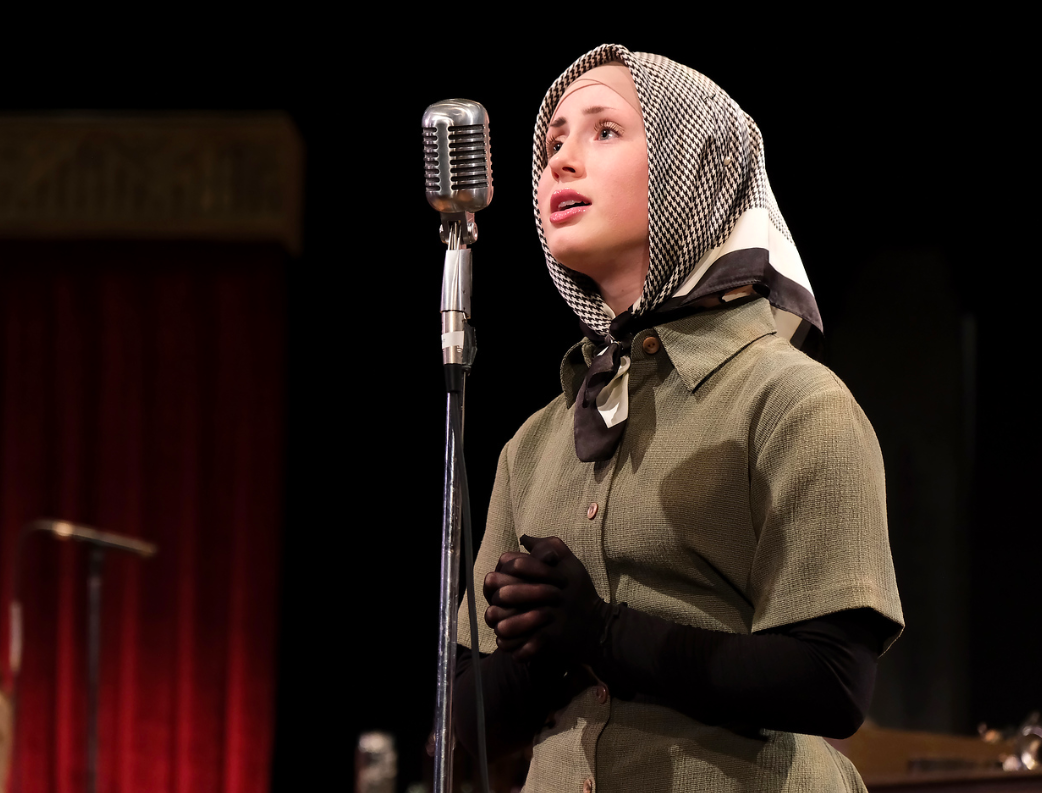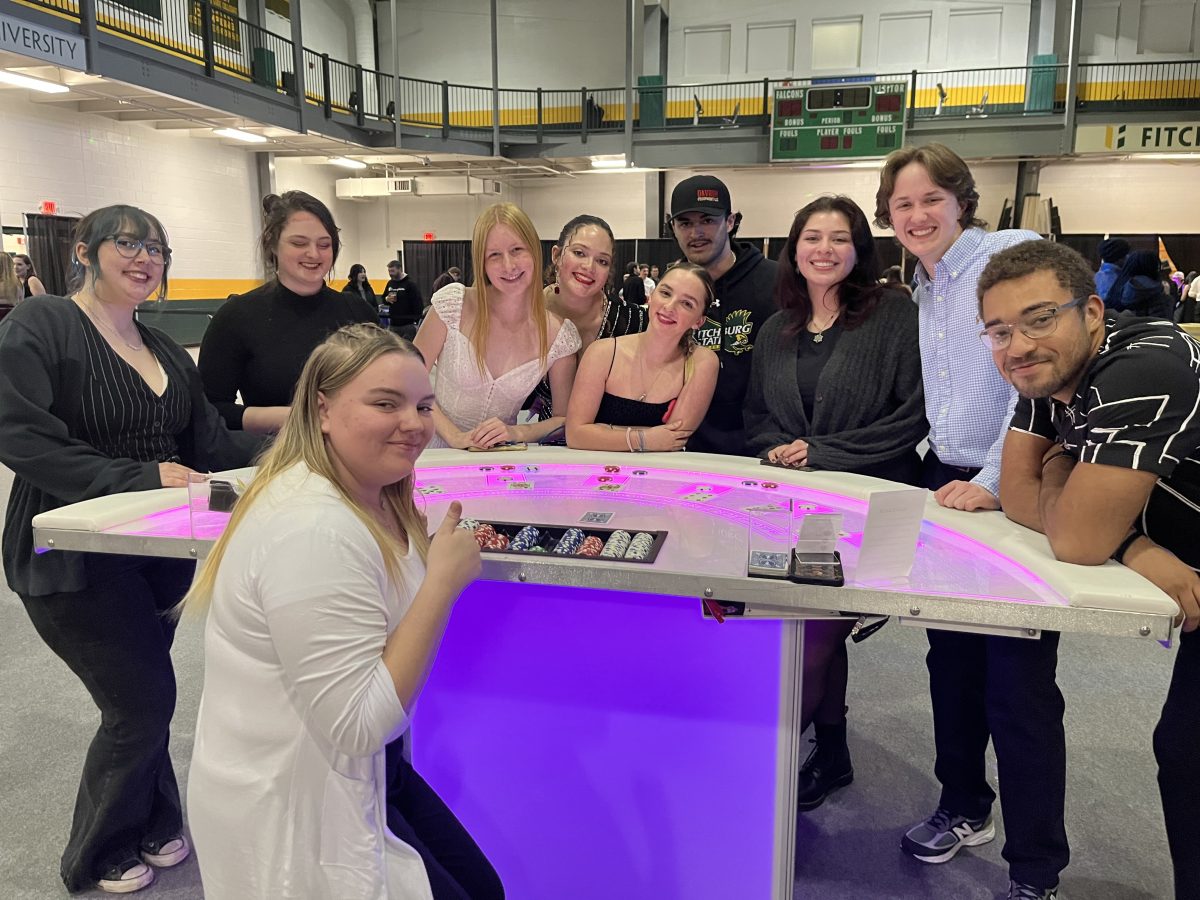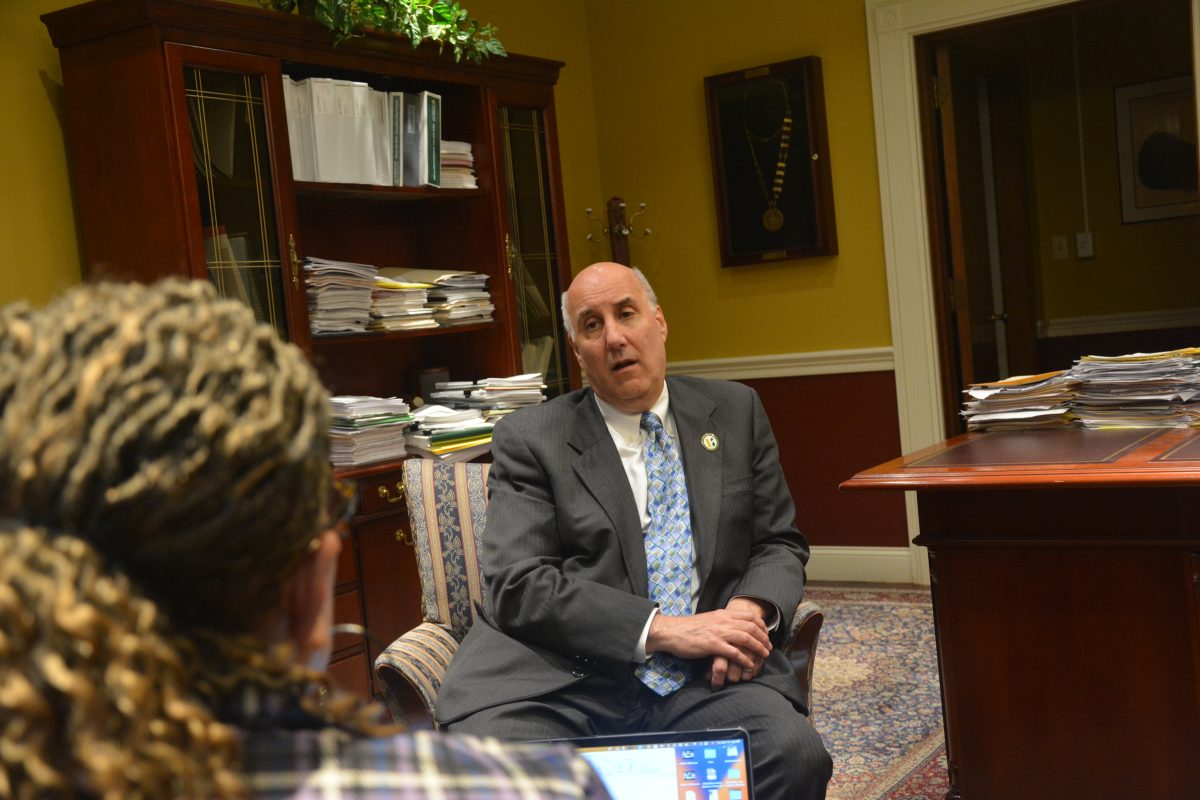By Danielle Blondin
The new Veterans Center to the Fitchburg State University campus represents one of the first accomplishments that the campus community has seen since Richard Lapidus stepped into the role of president in July. According to George Bohrer, a communications media professor at Fitchburg State, this centralized location for our 120 veteran students to congregate and support one another has been in the making for a while, but it wasn’t until Lapidus joined the campus community that the decision to take action was finally made. “President Lapidus provided the necessary leadership,” Bohrer said, “but faculty, staff, and student veterans themselves were all involved in bringing increased veteran support to our campus.”

Bohrer, along with James Noonan, a professor of business administration, advises the Student Veterans Organization on campus and was heavily involved in the Veterans Center’s establishment. Bohrer and Noonan are both veterans themselves, from the Vietnam era. “I was in the Navy and spent my four years either at the Naval hospitals or aboard the supercarrier USS Nimitz,” Bohrer explained. “Dr. Noonan actually experienced combat in Vietnam.” Bohrer said his military background made the implementation of the Veterans Center even more special. “I was thrilled when I learned that the veterans would finally be getting their center this semester. I, among many others, have worked for this for a long period of time and I am so happy that we are improving the environment for veterans at our university,” Bohrer said.
The Veterans Center is not currently staffed and is more of a hangout spot for veteran students to relax, according to Bohrer. In the center, which is a cluster of rooms located off the main lobby of Thompson Hall, visitors will find several comfortable couches and a kitchenette, as well as a cozy conference room and computer station. Plans call for eventually adding a front desk, phone line and a few staff members to the Veterans Center. “While our campus vets want to get to know their classmates and over time they will, it is also true that sometimes they need to be able to relax with people who have shared their military experiences,” Bohrer said.
This addition to campus is part of the much larger picture of assisting veterans and their families, and it requires the support of the entire campus community. “Higher education in general has recently had a bigger push to do more for veteran students across the board,” said Dan Connolly, transfer counselor and veteran liaison in the Admissions Office. “Everyone is looking internally and asking, ‘Do we do enough? Can we do more?’” Connolly said offices across campus, from Financial Aid to Counseling Services, have stepped up and provided specific liaisons for veterans to help ease them along in their college experience. Adding “veteran liaison” to Connolly’s list of duties was more than welcomed, he said, and he felt that it was appropriate considering his experience with transfer students. “We had resources before, but they were a bit scattered, and now the University is aligning everything to make it a much more streamlined process,” he explains. “Now, if a veteran student applies, they can come right to me.”
As a part of the cross-campus push for veteran support, many faculty and staff members attended a workshop this past summer led by the veteran coordinator from UMass Lowell. “It gave us insight that we were missing before. There were statistics and stories,” Connolly said. “When the actual veteran students presented, that definitely resonated. They were defining their problems and questions. It was nice to hear it from a student.” Sean Ganas, director of admissions at Fitchburg State, was also in attendance and agreed with Connolly on the importance of attentiveness to veteran students. “I think it was a really good use of my time,” Ganas said. “Veterans have unique needs, and we need to do business with them differently; that’s what I learned.” There is also something to be said about the University’s united stand in making veteran students a priority, Ganas said. “It was nice to see how much of the campus was there at the workshop and how many people recognized that we need to focus on this.”
The problems that veterans coming to college often face are significant age gaps between them and traditional college students, as well as the structure – or lack thereof – that college life entails. “It takes time to adjust to civilian life, especially when a vet leaves the very structured military life to the very unstructured life of a college student,” Bohrer said. According to Bohrer, the most important thing that members of the Fitchburg State community need to keep in mind about veteran students is that they are here for the same reason as every other student – to get an education and make the most of a college experience. It will be the mission of the Veterans Center and involved faculty and staff to make that not only possible, but also to streamline the process. “Our institution is working to make the process smoother, allowing our vets to spend their time learning and getting more out of their time here and less dealing with bureaucracy,” Bohrer said.
Categories:
Introducing, the Veterans Center
October 15, 2015
0
More to Discover






